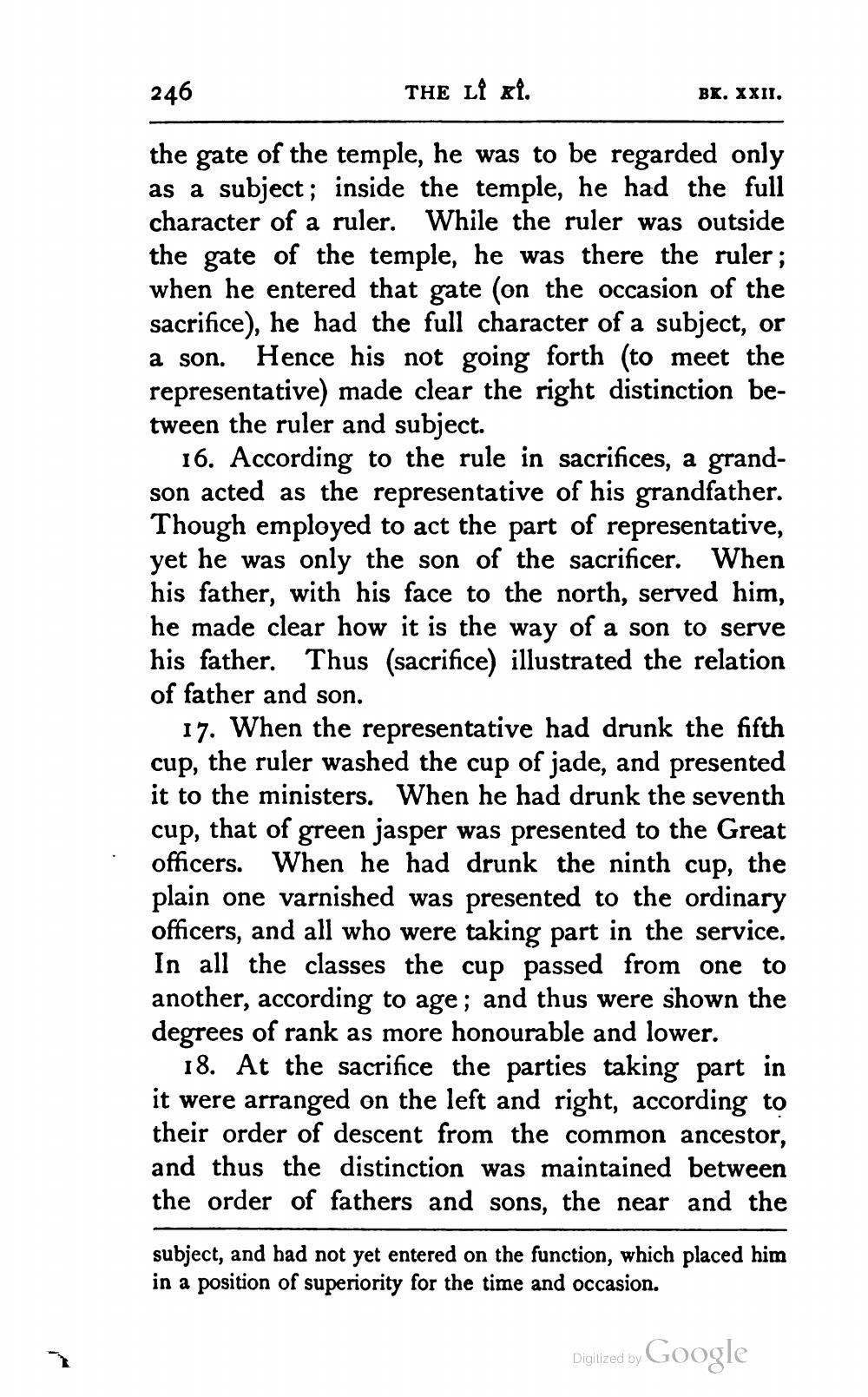________________
246
THE LÎ xi.
BK. XXII.
the gate of the temple, he was to be regarded only as a subject; inside the temple, he had the full character of a ruler. While the ruler was outside the gate of the temple, he was there the ruler; when he entered that gate (on the occasion of the sacrifice), he had the full character of a subject, or a son. Hence his not going forth (to meet the representative) made clear the right distinction between the ruler and subject.
16. According to the rule in sacrifices, a grandson acted as the representative of his grandfather. Though employed to act the part of representative, yet he was only the son of the sacrificer. When his father, with his face to the north, served him, he made clear how it is the way of a son to serve his father. Thus (sacrifice) illustrated the relation of father and son.
17. When the representative had drunk the fifth cup, the ruler washed the cup of jade, and presented it to the ministers. When he had drunk the seventh cup, that of green jasper was presented to the Great officers. When he had drunk the ninth cup, the plain one varnished was presented to the ordinary officers, and all who were taking part in the service. In all the classes the cup passed from one to another, according to age; and thus were shown the degrees of rank as more honourable and lower.
18. At the sacrifice the parties taking part in it were arranged on the left and right, according to their order of descent from the common ancestor, and thus the distinction was maintained between the order of fathers and sons, the near and the
subject, and had not yet entered on the function, which placed him in a position of superiority for the time and occasion.
Digitized by Google




